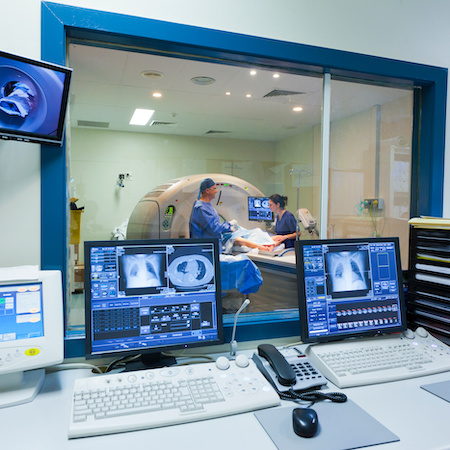This is according to the results of a new survey from the Patients Association that finds UK patients want better access to early and accurate diagnosis of health problems.
The survey - of just over 1,000 people, drawn largely from England - demonstrated several challenges experienced by patients in gaining access to diagnostic tests. One-third of respondents (33%) said when they tried to get a test, there were no appointments available locally. This reflects national data on the large numbers of patients unable to access diagnostic tests and services, even before consideration is given to any waiting lists for any treatment they may need.
Almost four in five (78%) patients felt testing facilities should be provided closer to patients’ homes to make access easier, and seven in ten (70%) wanted a clearer understanding of how to access tests. Some respondents highlighted that services are sometimes not available as advertised.
Speed and urgency of access to testing was another significant problem identified by survey. Only one in ten (11%) of respondents said they have never had any issues getting either a test or their results, or faced no consequences if they did. For those living with long-term conditions, delays and difficulties in accessing diagnosis have had significant consequences. Nearly one in five (17%) respondents said their long-term recovery was set back significantly. Many more reported consequences for their mental and physical health, and their wider work and family life.
Respondents were also unhappy about a lack of access to, and clear explanation of, test results. Almost nine in ten (88%) patients wanted a realistic timeline for their test results to come through and a similar number (87%) called for a better explanation of what those results meant for them and their treatment.
Patient-created solutions
The survey discovered patients are finding ways around the challenges they faced. Three in five (60%) of respondents said they would be prepared to pay for a test to be done privately if they faced a long wait, or the test they needed was not available on the NHS. Nearly two thirds (61%) of respondents believed expanding opportunities to test at home could help speed up diagnosis.
Investing in diagnostics and new technology was supported by most respondents. For example, more than half (57%) of respondents felt the use of new technology such as artificial intelligence could speed up diagnosis and reduce pressures on the NHS - an important factor since nearly one-third (29%) said they delayed seeking tests to avoid wasting NHS time and resources.
Almost nine in ten (86%) felt testing and diagnosing conditions more quickly would help reduce the NHS backlog. While patients want to feel more empowered in taking charge of their own health, they are also keen that solutions are sought to support NHS efficiency and sustainability in the longer-term.
Community Diagnostic Centres: part of the solution
In October last year, the Government announced it would meet its target to open 160 Community Diagnostic Centres (CDCs) a full year early - by March 2024 rather than March 2025. Many of these are already open, however, the Patients Association recommends that the development of more hubs should be encouraged and the number of tests that they offer should be expanded to enable more patients to benefit from their introduction. It reports that by 2022, CDCs had only increased testing capacity by 2%, with an ambition to reach 5% within two years, but with demand for tests rising by as much as 7% each year, and 1.6 million currently waiting for tests, “there is potential for CDCs to do much more.”
It is a view echoed by the King’s Fund in a blog published in October 2023, which points out that setting up CDCs outside of the existing NHS estate is expensive, with high upfront costs and risks associated with using space let by private landlords. For this reason, most CDCs are likely to be located on existing NHS estate, which will limit their potential to address the health inequalities and access issues they were intended to resolve.
The King’s Fund also points out that the majority of diagnostic tests are taking place outside of CDCs, with CDCs carrying out only 6.3% (139,000) of the tests done in August 2023. There is a long way to go to meet the ambition of 17 million tests. The real value of CDCs, it insists, is in realising the vision of doing diagnostics differently, which is where the focus needs to be.”











